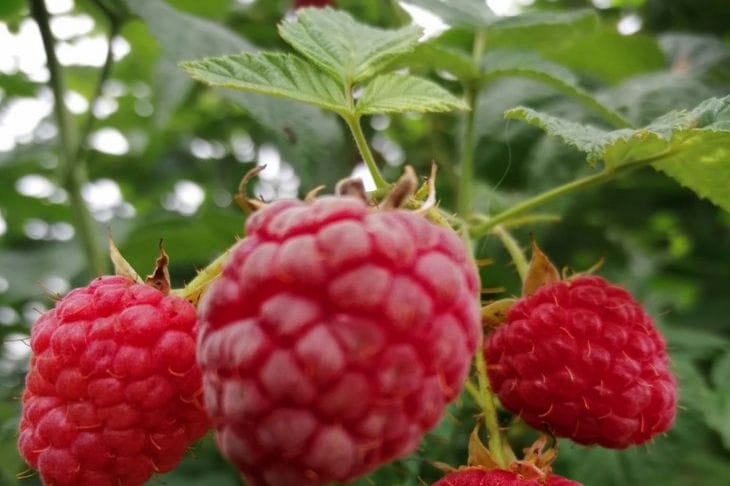Raspberries are one of the most beloved and delicious summer treats.
Juicy and aromatic berries attract not only people, but also numerous pests. Often, garden owners face the problem of bugs, which can significantly spoil the harvest.
How to get rid of bugs in raspberries and keep the berries fresh and safe to eat?
Preventing the appearance of bugs
Prevention is the first step to getting rid of raspberry bugs.
Regular care of plants and adherence to agricultural practices help prevent the spread of pests.

It is important to prune raspberries in spring and autumn, removing old and diseased shoots. This improves air circulation and reduces the likelihood of insects appearing.
Manual collection of pests
Manual collection of bugs is one of the simplest and most accessible methods. This method is especially effective in the initial stages of infestation.
Raspberry bushes should be inspected regularly and pests removed manually. This method is suitable for small gardens where it is possible to pay attention to each bush.
Application of biological methods
Biological methods of controlling bugs include the use of natural enemies of pests. For example, ladybugs, lacewings and other predatory insects actively eat bugs and their larvae.
Attracting these insects to your garden can help control pests naturally by planting plants that attract beneficial insects, such as dill, parsley, and marigolds.
Using folk remedies
There are many folk remedies that help fight bugs on raspberries. One of them is garlic or onion tincture. To prepare the tincture, you need to grind several cloves of garlic or one large onion, pour a liter of water and leave for several hours.
The resulting solution is used to spray raspberry bushes. This product effectively repels insects and prevents their reproduction.
Use of chemicals
When folk remedies and biological methods fail, you can resort to using chemicals.
It is important to choose safe and approved products that do not harm humans or the environment. Chemicals should be used strictly according to the instructions to avoid negative consequences. Spraying is best done in the evening to minimize the impact on beneficial insects.
Proper watering and fertilizing
Proper care of raspberries includes not only pest control, but also maintaining plant health.
Regular watering and timely fertilizing help strengthen the bushes and make them resistant to diseases and insects.
It is important to monitor soil moisture levels and avoid overwatering, which can promote rot and attract pests.
Removing damaged berries
Removing damaged berries is another important step in the fight against bugs. Damaged berries can become a source of infection and attract new pests.
Regularly inspect the bushes and remove any berries that show signs of damage. This will help reduce the number of pests and preserve the harvest.
Mulching and soil cultivation
Mulching and regular tilling of the soil around raspberry bushes help prevent pests from multiplying.
Mulch retains moisture, suppresses weed growth and creates an unfavorable environment for insects.
Organic mulch such as straw or fallen leaves can be used. Tilling the soil in spring and fall also helps kill pest larvae and pupae hiding in the soil.








